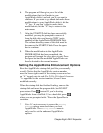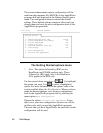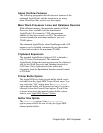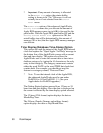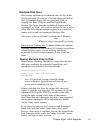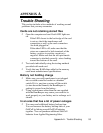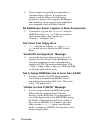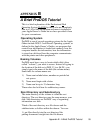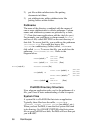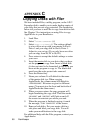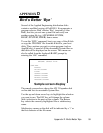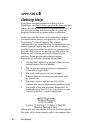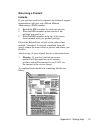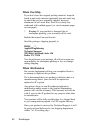2) put files within subdirectories like putting
documents in folders
3) put subdirectories within subdirectories like
putting folders within folders.
Pathname
The name of the directory combined with the names of
one or more subdirectories is called a pathname. Volume
names and subdirectory names are preceded by a slash,
“/”. (Note that some applications add the slash for you.)
For example, you could have a volume named /MY.DISK
and have a file, called /MY.FILE on the root directory of
that disk. To access that file, you would use the pathname
/MY.DISK/MY.FILE. You could also have a file,
/JUL.AUG in a subdirectory (folder) called, /PHONE on a
disk called /BILLS. To access that file, you would use the
pathname, /BILLS/PHONE/JUL.DEC. Refer to the
diagram below.
JAN.JUN
PHONE (subdir.)
<
JUL.DEC
(files)
JAN.JUN
ELEC. (subdir.)
<
JUL.DEC
(files)
BILLS (root dir.) ACCOUNT.SYSTEM (file)
JAN.JUN
ZIPPY.FUEL (subdir.)
<
JUL.DEC
GAS (subdir.) <
JAN.JUN
NTTRO.NEDS (subdir.)
<
JUL.DEC
WILD
FAMOUS (subdir.< THE.KID (files)
BO.BAGGINS
ProDOS Directory Structure
Now when an application asks you for the pathname of a
file, you'll have a basic understanding of what it expects.
System Files
A system file is a ProDOS file that starts an application.
Typically, these files have the suffix, . SYSTEM (e.g.
/APLWORKS . SYSTEM, /ACCOUNT . SYSTEM [see above], etc.).
When you boot ProDOS, it runs the first system file listed
in its directory. So, if BASIC.SYSTEM is the first system
file on your ProDOS boot disk, ProDOS will boot then put
you in BASIC.
56 RamKeeper



